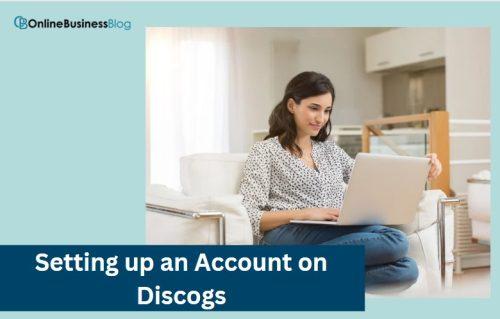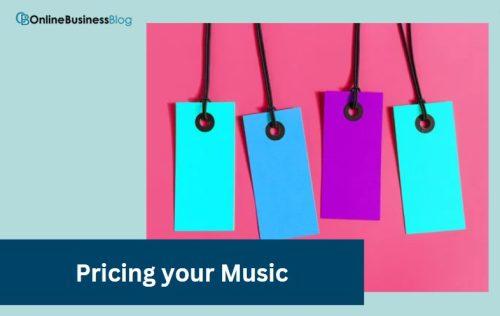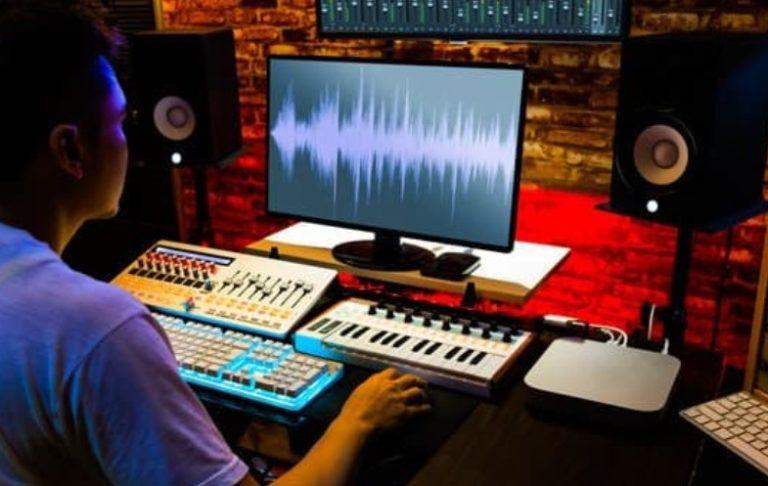Post Contents
Introduction
Are you a music enthusiast looking to sell your physical music collection? Look no further than Discogs! With over 12 million active users, Discogs is the world’s largest music database and marketplace for vinyl, CDs, cassettes, and more. But how do you get started selling your music on this platform? In this blog post, we’ll guide you through the process of setting up an account, creating accurate listings, pricing competitively, shipping securely and promoting effectively to become a successful seller on Discogs. So put on your favourite record, and let’s dive in!
How To Sell Music On Discogs? – Get Your Music Noticed and Sold
Setting up an Account on Discogs

Setting up an account on Discogs is the first step to start selling your music on this platform. It’s a straightforward and free process that requires basic information like your email address and username.
To create an account, go to the Discogs website and select “Sign In” at the top right corner of the page. Then click on “Create Account” and enter your email address, username, and password. You’ll also need to agree to Discogs’ terms of service before proceeding.
Once you’ve created your account, make sure to fill out all the required fields in your profile. This includes adding a profile picture or avatar and filling out a bio section about yourself or your store if you have one. Having a complete profile will help potential buyers know more about who they are dealing with.
It’s important to note that Discogs has strict guidelines for its sellers regarding their behaviour towards buyers as well as accurate listing requirements. So be sure to read through these policies before starting any sales activities.
Setting up an account on Discogs is easy and essential for anyone looking to sell music online through this platform. Just remember that providing accurate listings with excellent customer service is key when it comes to building trust among buyers!
Uploading your Music to Discogs
Uploading your Music to Discogs is a simple process that requires you to create a release. A release is essentially a collection of tracks or songs packaged together in a specific format such as vinyl, CD, cassette or digital.
When creating your release on Discogs, it’s important to provide accurate and detailed information about the music you are selling. This includes things like artist name(s), album title, tracklist order and any additional notes or special features.
Adding high-quality images of the physical format being sold can also be helpful for potential buyers to get an idea of what they’re purchasing.
If you’re uploading music that has already been released on Discogs, it’s possible to add your tracks to an existing entry instead of creating a new one. This helps keep the database organized while making it easier for collectors and enthusiasts alike to find exactly what they’re looking for.
Uploading your music onto Discogs is an essential step towards opening up opportunities for more people around the world who are interested in buying rare records and other formats from independent artists as well as established ones.
Creating Accurate Listings
Creating accurate listings is key when selling music on Discogs. This is because buyers rely on the information provided to make informed purchasing decisions. When creating a listing, ensure that all relevant details are included, such as the artist name, title of the release, format (vinyl, CD, cassette), and condition.
It’s also important to include any additional noteworthy information about the release. For example, if it’s a limited edition or first pressing. The more detailed and informative your listing is, the higher chance you have of attracting potential buyers.
Make sure to accurately describe the condition of your item by using Discog’s grading system, which ranges from “Mint” all the way down to “Poor”. It helps manage buyer expectations and reduces disputes over discrepancies between what was described in your listing versus what they received.
Always double-check for accuracy before publishing your listing. Mistakes can lead to confusion and deter potential buyers from making a purchase. Taking the time upfront will save you headaches later on during transactions with customers who may return items due to inaccurate descriptions or other issues that could’ve been avoided if an accurate description had been made in advance.
Pricing your Music

Pricing your music competitively is a crucial aspect of selling on Discogs. Nobody wants to pay more than what they can get elsewhere, so it’s important to do some market research before setting your prices.
- One way to determine the value of your music is by looking at similar releases that have sold recently on Discogs. This will give you an idea of what buyers are willing to pay for your type of release.
- Another factor to consider when pricing your music is the condition. Releases in mint or near-mint conditions may be worth more than those in lesser conditions.
- It’s also important not to overprice or underprice your music. Overpricing may deter potential buyers, while underpricing may result in losing out on profits.
- Consider offering deals and discounts if necessary but make sure they are still profitable for you as a seller.
Ultimately, finding the right price point takes some trial and error, but with careful consideration and research, you can price competitively and increase the chances of making successful sales on Discogs.
Shipping and Handling
Shipping and handling essential parts of selling music on Discogs. Once a buyer purchases your music, you’ll need to ship it to them promptly. It’s important to package your music safely and securely to ensure it arrives in the same condition it was sold.
The first step is to choose the appropriate packaging for your release. Use sturdy boxes or mailers that can protect the item during transit. Make sure there’s enough space inside the box or mailer for additional padding and protection.
When packing vinyl records, use proper inner sleeves, outer sleeves, and cardboard stiffeners if necessary. CDs should be packed in jewel cases or slimline cases with additional padding around them.
Once you’ve packaged everything up, weigh the package accurately so you can calculate shipping costs correctly. You can use online shipping calculators provided by USPS or other carriers to get estimated rates quickly.
When sending internationally, make sure to fill out customs forms accurately and honestly. Buyers may have to pay import taxes on their end when receiving international shipments.
Once everything is ready for shipment, make sure you provide buyers with tracking information so they can monitor their package’s progress until delivery. By ensuring safe packaging and reliable delivery methods, you’re setting yourself up for success as a seller on Discogs!
Communicating with Buyers

When selling on Discogs, clear communication with buyers is crucial. Responding promptly to messages and providing honest answers to their questions can help build trust and establish a positive reputation as a seller.
It’s important to be transparent about the condition of the item being sold and any potential issues that may impact its value or quality. If there are imperfections or damage present, be sure to include this information in your listing description and provide photos if necessary.
Once an item has been purchased, it’s essential to keep buyers informed about shipping and handling. Provide tracking information when available so they can monitor the progress of their package. Be sure to also communicate any delays or issues that may arise during the shipping process.
In the event that a buyer contacts you with concerns or complaints about their purchase, respond respectfully and professionally. Offer solutions such as refunds or exchanges if appropriate, but always prioritize open communication throughout any resolution process.
Clear communication with buyers is essential for establishing trust and building long-term relationships on Discogs. By providing accurate information and prompt responses, you can ensure a positive experience for both parties involved in the transaction.
Handling Returns and Refunds
Handling returns and refunds is an essential part of selling music. As a seller, you must have a clear policy in place for handling such situations to ensure that both you and your buyer are satisfied with the outcome.
- Firstly, it’s crucial to communicate your return policy clearly to buyers before they make their purchase. This includes specifying how long after delivery buyers can request a return or refund, what items can be returned or refunded (such as damaged or incorrect items), and who will cover shipping costs.
- If a buyer requests a return or refund, respond promptly and professionally. Request additional information if necessary to understand why they wish to return the item. Once you’ve agreed on the reason for the return/refund, provide instructions on how they should send back the item.
- When receiving returned items, carefully inspect them to determine whether they meet your standards for reselling. If the item is in good condition, process the refund quickly and inform the buyer once it has been issued.
- In cases where an exchange is requested instead of a full refund, work with the buyer to find an acceptable replacement item from your inventory that meets their needs.
Having clear policies in place for handling returns and refunds and communicating them effectively with buyers throughout each step of this process helps build trust between seller & buyer, which ultimately leads towards successful sales!
Promoting your Music on Discogs
Promoting your music on Discogs can be a great way to increase your visibility and attract potential buyers.
- One way to promote your music is by offering discounts or creating bundle deals. This can entice customers who may be hesitant about purchasing at full price.
- Another effective method is promoting on social media and other channels. Utilize platforms like Instagram, Facebook, Twitter, and YouTube to showcase your releases and engage with fans. Consider partnering with influencers or bloggers in the music industry who have a similar audience as yours.
- Additionally, you can use Discogs’ own advertising options to get more exposure for your releases. You can place ads on the site’s homepage or even target specific regions or user groups that are most likely interested in what you’re selling.
- Furthermore, it’s important to create eye-catching listings that stand out from other sellers. Use high-quality photographs of the product along with detailed descriptions that highlight its unique features.
- Promoting your music on Discogs requires creativity and effort, but it will help attract potential buyers by increasing your visibility which could translate into sales opportunities!
Tips for Success on Discogs

To become a successful seller on Discogs, there are several essential tips to keep in mind.
- Firstly, accurate listings are key: Be sure to include all relevant information about the release, including the artist, title, format and condition. Don’t forget any noteworthy details that could make your item more appealing.
- Next up is competitive pricing: Do some research into what similar releases are selling for and price yours accordingly. You don’t want to overcharge or undercharge potential buyers.
- Excellent customer service is also crucial: Respond promptly to messages from buyers and answer any questions honestly. Communication is key when it comes to shipping and handling, too – be transparent with timelines and tracking information so they know exactly when their purchase will arrive.
Consider joining Discogs groups and forums where you can connect with other sellers and buyers alike. Not only will this help you gain valuable insights, but it’s also an excellent way of promoting your items amongst like-minded individuals who may appreciate what you’re selling!
Conclusion
Selling music on Discogs can be a rewarding experience for both music enthusiasts and sellers. With the world’s largest marketplace for physical music formats, you have the opportunity to connect with buyers from all over the globe and share your passion for music.
To successfully sell on Discogs, it’s essential to create accurate listings, price competitively, ship securely and promptly communicate with buyers. By following these tips, you’ll increase your chances of making sales and building a positive reputation as a seller.
Remember to always prioritize customer service while selling your music on Discogs. The platform is built around connecting people through their shared love of music, so creating positive experiences for buyers will only help grow this community further.
So go ahead and start listing your vinyl records or CDs today! Happy Selling!
FAQs on how to sell music on Discogs
1. How much does it cost to sell on Discogs?
It is free to list items for sale on Discogs. However, when you make a sale, there are fees associated with the transaction. For UK sellers, the fee is 8% of the total sale price (including shipping), plus a 50p processing fee.
2. How do you put music on Discogs?
To put music on Discogs, you will need to create a release by adding details about the artist, title, format, and condition of the item. You can do this by clicking the “Add Release” button on your account dashboard and following the prompts.
3. How do you get paid on Discogs?
Discogs offers several payment options, including PayPal, Stripe, and direct bank transfers. Once you make a sale, the funds will be deposited into your Discogs account, and you can then transfer the money to your chosen payment method.
4. Is Discogs a good place to sell?
Yes, Discogs is a popular and reputable platform for buying and selling music. It has a large and active community of music enthusiasts and collectors, making it a great place to reach a global audience for your music. However, success on Discogs depends on the quality of your listings, pricing, shipping, and customer service.


